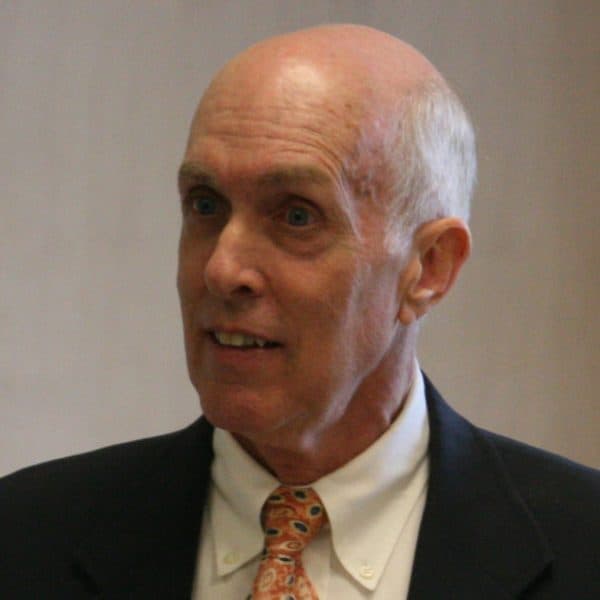Advertisement
Where Are They Going? Helping Our Students Find Their Way

Many years ago, I studied acting with a wonderful teacher named Walt Witcover. In his first class, he asked, “Who wants to start?” That’s all he said, no elaboration. This was a class of serious theater types who wanted to be professional actors, so a volunteer quickly moved into the performance space while Walt joined us, the audience.
Silence. We looked at the volunteer. He looked at us. He smiled nervously. He cleared his throat and looked at Walt. “What do you want me to do?” he asked. Silence. He looked uncomfortable, fidgeting, twitching, shifting his weight. “I don’t know what you want me to do.” He spoke with tension and frustration. Silence. He began a story, stopped. He began a monologue, laughed. Silence. He began a song. Silence. Then, he began to get angry. “That’s it,” he said.
I have seen...passivity in students. Their behavior in the classroom -- the lack of engagement, the willingness to yield to authority, the lack of skepticism -- reflects a deeper, more fundamental submissiveness.
“You’re finished?” asked Walt.
“Yes,” said the volunteer.
“How do you know?” asked Walt.
Walt taught us a simple lesson that day: Most of us had no idea what we wanted to achieve on stage. Accustomed to turning ourselves over to a director, we came to the class expecting to be told what to do.
During my years as a teacher, I have seen this same sort of passivity in students. Their behavior in the classroom — the lack of engagement, the willingness to yield to authority, the lack of skepticism — reflects a deeper, more fundamental submissiveness.
Of course, children are famously willful. Two-year-olds resist sharing. Ten-year-olds resist chores. Some teenagers resist just about anything a parent suggests. The fact remains, however, that many children grow up thinking and doing what their parents and teachers tell them to do. They follow paths predetermined by birth and societal expectations — by race and class and religion and gender, and by all of the stereotypes that go with them. Children listen and follow, so it is hardly surprising that, as they move up through school, they wait for direction.
Advertisement
By high school, few have thought in any sort of depth about what they want to accomplish. Beyond wanting the diploma, most students, in my experience, haven’t drawn a line between their educations and their aspirations, vague as they might be. Many — too many — become unhappy adults. The reason? They didn’t give enough — or any — thought to becoming active participants in learning. Students are by and large missing the opportunity to determine and shape their lives.
But why would they, especially if the adults in their lives don’t encourage choice and engagement? Often harried in their own day-to-day lives or simply trying to keep order at home or in a classroom, adults put a premium on obedience of thought and behavior. The acquiescent child is not a time-consuming one, after all. The quicker path to the desired outcome is to tell a kid how to do it, rather than to let him figure it out on his own. It’s easier to tell children what to think than to teach them how to think.
So we design efficient, orderly schools. We impose consequences for rules broken and directives not followed. Educators’ responses to wrong answers in class or on a test can unwittingly (or not) discourage future participation. One way or the other, children come to think of themselves as having to do what they are told and to have the right responses, too.
Would that docility produced happiness. Mostly, it doesn’t. The signs are everywhere — in the shouts and slamming doors of those who rebel, in self-destructive behaviors, in depression, in children’s need for direction and approval from others, in their whining, in their apparent unhappiness with their lives.
At some point...it’s up to children to engage in their educations and become active learners and thinkers. But the adults in their lives have the responsibility to teach them how.
Adults thrive when we feel that we are making our own way in the world. So do young people. When my students argued that Biff Loman in "Death of a Salesman" needs to find himself and break free from the suffocating expectations of his father, they were identifying — consciously or not — with their own longing to figure out who they are and to be true to themselves. One graduating senior put it eloquently in a commencement address: “By not testing myself or taking chances to go beyond what was expected of me, I was becoming stuck in the persona others had created for me. In fact, I was helping them create it over and over again…I hid in my work because it protected me from having to decide what it was I actually wanted.”
At some point, usually in high school, it’s up to children to engage in their educations and become active learners and thinkers. But the adults in their lives have the responsibility to teach them how. It begins with helping them connect the classroom to their lives, both present and future. This is the job of teachers and school administrators, to design schools, curricula and classrooms for independent decision-making, not passive obedience.
All those years ago, Walt honored that responsibility when he refused to tell us what to do. In the reflections of the mirror that Walt held up to us, we saw our fear and dependence. We saw our neediness. “You wouldn’t go to Penn Station and just board any old train, would you?” Walt asked us. “What’s your destination? Where do you want to go?”
Good questions.
Related:
- Laurie Edwards: Teaching The ‘Me Me Me Generation’
- Radio Boston: 6 Stereotypes About Millennials At Work — And The Realities Behind Them
- On Point: Stress And Consequences For American Teens
